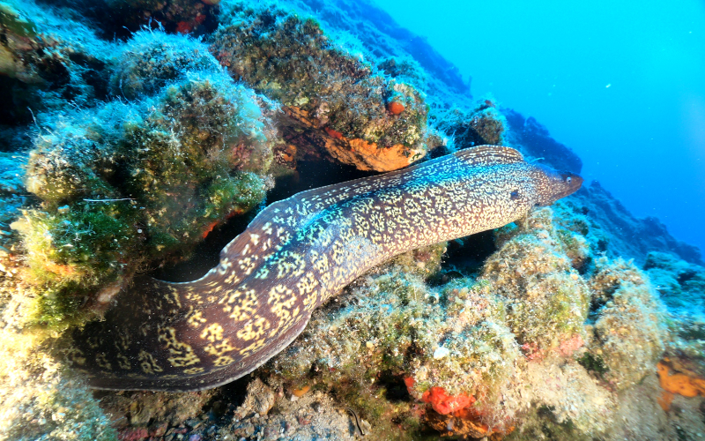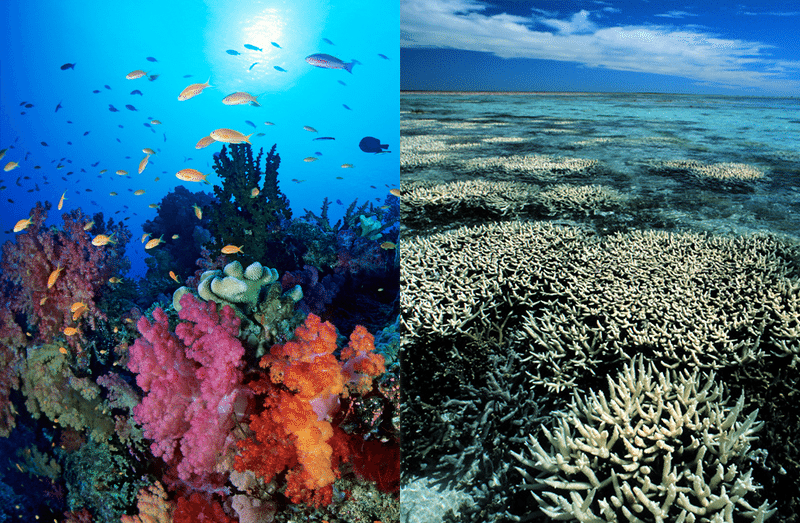Great Barrier Reef was most recently categorized by the International Union for Conservation of Nature (IUCN) as threatened, the situation for both the Great Barrier and most reefs overall could be even worse than this.

Recent studies have shown that half the Great Barrier reef was killed off by bleaching events linked to climate change and ocean acidification in just the last few years. Experts think this and other coral reefs around the world could all be dead within decades without action to cut emissions.
A study by renowned scientist Professor Baird claims that the number of new corals plummeted by 89% on the reef thanks to recent bleaching events, which affected a 1,500km stretch. Coral bleaching is caused by rising temperatures and occurs when corals under stress drive out the algae – known as zooxanthellae – that give them color. If normal conditions return, the corals can recover. But it can take decades, and if the stress continues the corals can die. If normal conditions return, the corals can recover. But it can take decades, and if the stress continues the corals can die. The study also found that the mix of baby coral species had changed. It found a 93% drop in Acropora, a species which typically dominates a healthy reef and provides
 habitats of other species. The researchers said that coral replenishment could recover over the next five to 10 years if there were no future bleaching events.
habitats of other species. The researchers said that coral replenishment could recover over the next five to 10 years if there were no future bleaching events.
However, given current estimates, this likelihood was “almost inconceivable”, said Prof Baird.

